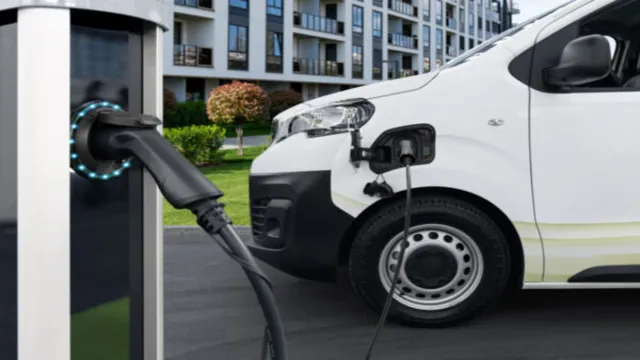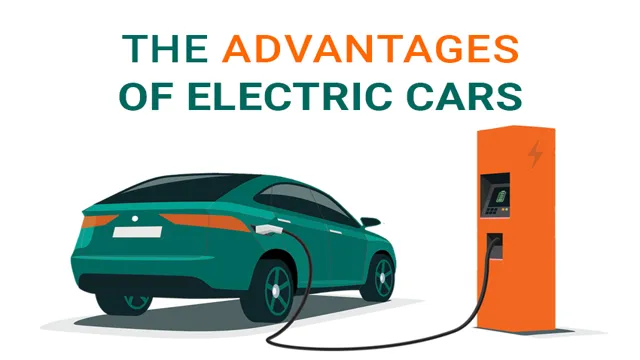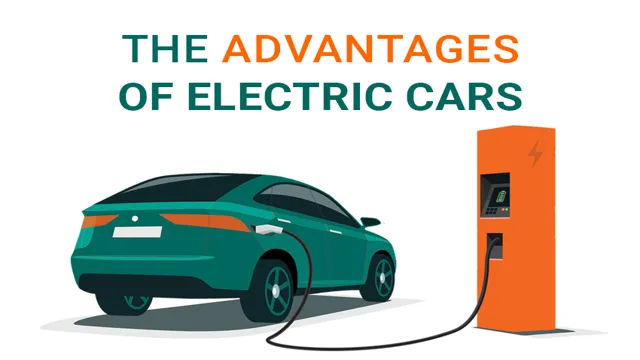Maximize Your Savings: A Guide to Electric Car Tax Benefits for Limited Companies
Electric cars are becoming increasingly popular among individuals and businesses who are looking for ways to reduce their carbon footprint and save on fuel costs. Limited companies can also benefit from purchasing electric cars, as there are several tax incentives available to them. In this blog, we will explore the different tax benefits that limited companies can enjoy when purchasing electric cars.
We will also discuss how these tax breaks work and what requirements need to be met in order to qualify for them. Whether you’re a small business owner or part of a larger corporation, this information can help you make an informed decision about purchasing electric cars for your company’s fleet. So buckle up and let’s dive into the world of electric car tax benefits for limited companies!
Key Tax Benefits for Limited Companies
When it comes to electric cars, there are numerous tax benefits available for limited companies. For one, there is the electric vehicle tax credit, which allows your company to claim up to $7,500 per electric vehicle purchased. This is a great incentive for companies looking to reduce their carbon footprint and transition to more sustainable and environmentally-friendly transportation options.
Not only that, but electric cars also have lower maintenance and operating costs, which could lead to increased financial savings over time. Additionally, electric cars are exempt from certain taxes and fees, such as the London Congestion Charge, further reducing the overall cost of operating these vehicles. These tax benefits can help companies save money while also contributing to a more sustainable future.
So if you’re looking to reduce your carbon footprint and save money in the process, consider investing in electric vehicles for your limited company.
Capital Allowances for Business Cars
As a limited company owner, you can enjoy some significant tax benefits when it comes to business cars. One of the most attractive advantages is the ability to claim capital allowances on your vehicle purchases. Capital allowances are a form of tax relief that allows you to deduct the full cost of qualifying assets, including cars, from your company’s taxable profits.
The amount of capital allowances you can claim depends on the type of vehicle you buy and its CO2 emissions. For example, electric and hybrid cars typically qualify for a higher rate of capital allowances than petrol or diesel cars. By taking advantage of capital allowances, you can lower your company’s tax bill and reinvest those savings back into your business.
It’s a win-win situation for your finances, and the environment too!

Claiming VAT on Charging Costs
As a limited company, there are various tax benefits that you can take advantage of. One such benefit includes being able to claim VAT on charging costs. If your company has electric cars or hybrids and you need to charge them, the VAT on charging costs can be claimed back as an input tax.
This means that you can reduce the amount of VAT you owe to HM Revenue and Customs. It’s important to keep a record of all charging costs so that you can accurately claim VAT on them. By doing this, you can save money and reduce your company’s tax liability.
It’s a great way to incentivize your company to invest in electric or hybrid cars and reduce your company’s carbon footprint. So why not take advantage of this tax benefit and help the environment at the same time?
Reducing National Insurance Contributions (NICs)
As a limited company, one of the most significant benefits is the ability to reduce National Insurance Contributions (NICs). This is because, as a director, you can pay yourself a salary up to the National Insurance threshold and then take the rest of your income as dividends. Dividends do not attract National Insurance, thus reducing the amount of tax you have to pay.
This strategy can save you a significant amount of money, especially if you’re earning a high income. By structuring your income in this way, you can maximize your take-home pay, and you’ll also be contributing less to the government with unneeded taxes. Overall, reducing NICs is a smart move for any limited company that wants to benefit from tax savings and retain more of their hard-earned income.
Eligibility Criteria
If you own a limited company and are considering purchasing an electric car, you may be wondering if you are eligible for tax benefits. Fortunately, there are a few things to keep in mind that can help you determine if you qualify. First and foremost, the vehicle must be an electric or hybrid car, and it must be purchased for company use only.
Additionally, the car must have CO2 emissions of less than 50g/km, which is a common feature of most electric cars. It’s also important to note that the tax benefits will depend on the specific type of vehicle you purchase as well as the level of emissions it produces. Some electric vehicles may be eligible for a government grant, and there are also tax incentives available for businesses that invest in low-emission transport.
So, if you’re considering an electric car for your limited company, it’s worth doing some research to determine what tax benefits may be available to you.
Vehicle Emissions Criteria
When it comes to determining vehicle emissions criteria eligibility, there are a few key factors to consider. The primary criterion is the age of the vehicle, with older models typically facing greater scrutiny than newer ones. Another important factor is the type of vehicle, as heavier vehicles tend to emit more pollutants than lighter ones.
Additionally, the location of the vehicle is taken into account, as urban areas tend to have more stringent emissions requirements than rural or suburban areas. Other factors that may impact eligibility include the vehicle’s engine size, fuel type, and whether or not it meets certain emissions standards established by regulatory agencies. Overall, the goal of emissions criteria is to reduce the environmental impact of vehicles on air quality and public health, making it critical that eligibility standards are fair, effective, and enforceable.
Use of Vehicle for Business Purposes
If you’re considering using a vehicle for business purposes, it’s important to understand the eligibility criteria. Generally, to use a vehicle for business, you must own it outright, or you must have permission from the owner to use it. Additionally, you’ll need to have all the necessary insurance coverage and licenses to operate the vehicle on public roads.
Furthermore, the specific eligibility criteria may vary depending on the industry you’re in and the type of business you’re running. For instance, if you’re a delivery driver, you may need to have additional insurance coverage beyond the standard commercial auto policy, such as cargo insurance. It’s also worth noting that if you’re using a personal vehicle for business purposes, you may need to make certain adjustments to your insurance coverage to ensure you’re adequately covered.
Depending on your policy, your personal auto insurance may not cover damages or injuries sustained while using your car for business purposes. Overall, to determine your eligibility for using a vehicle for business purposes, you’ll need to carefully review the requirements and policies of your industry, as well as any regulatory guidelines that may apply. With the right preparation and planning, however, using a vehicle for business can be a great way to grow your company and reach new customers.
How to Claim Electric Car Tax Benefits
If you own a limited company and are thinking of getting an electric car, you may be wondering what tax benefits come with it. First off, it’s important to note that the amount you can claim depends on several factors, such as the type of car, its CO2 emissions, and your personal tax status. However, as a limited company, you may qualify for several tax benefits, including reduced National Insurance contributions, 100% first-year allowances for electric vehicles, and exemption from the London Congestion Charge.
Additionally, electric cars are exempt from vehicle excise duty. It’s important to keep detailed records of your expenses and consult with a tax advisor to ensure you’re taking full advantage of all available benefits. By investing in an electric car, you not only reduce your company’s carbon footprint but also save money in the long run.
Keeping Accurate Records
If you’re in the market for an electric car, there’s good news: you could qualify for tax benefits! But before you start filing your taxes, it’s important to keep accurate records of your electric car expenses. This includes the purchase price of the car, any charging equipment you buy, and your electric bills. To claim the tax benefits, you’ll need to file Form 8936 with the IRS, which will require you to provide detailed information about your electric car usage.
Don’t let this deter you, though – the benefits can be significant, with up to $7,500 in federal tax credits available for some electric cars. Plus, buying an electric car is good for the environment and can save you money in the long run by reducing your reliance on gas. So, if you’re considering an electric car purchase, be sure to keep meticulous records and take advantage of the potential tax benefits.
Completing Your Tax Return
Electric Car Tax Benefits If you’re an owner of an electric car, then you’re in luck come tax season. The U.S.
government wants to encourage the use of electric vehicles, and one of the ways they do this is by offering tax incentives. The federal government provides a tax credit of up to $7,500 for qualifying electric vehicles. This credit will help you lower your tax bill or even increase your tax refund.
Keep in mind that not all electric cars qualify for this credit. For example, hybrids do not qualify, but plug-in hybrids and fully electric vehicles do. It’s important to do your research before you purchase your electric car to ensure you’re getting one that qualifies for the tax credit.
Additionally, some states offer their own electric car tax incentives on top of the federal credit, so make sure to check your state’s regulations as well. Take advantage of these tax benefits and make the switch to an electric car today to not only save money on gas but on your taxes as well.
The Future of Electric Car Tax Benefits for Limited Companies
Electric car tax benefits for limited companies have been popular in recent years, as environmentally-friendly businesses attempt to reduce their carbon footprint. Currently, companies can receive tax incentives for purchasing electric cars, including lower fuel costs, reduced road tax, and government grants. However, the future of these benefits is uncertain, as governments worldwide grapple with the economic and environmental effects of the COVID-19 pandemic.
While many countries continue to promote electric vehicles as a key part of their environmental agenda, some have suggested that government subsidies may need to be reduced or eliminated entirely in light of budget constraints. Whether electric car tax benefits for limited companies will continue to be available remains to be seen, but businesses that prioritize sustainability may still find the benefits of electric cars to outweigh the costs.
Conclusion
In conclusion, choosing to operate an electric car through a limited company can lead to a plethora of tax benefits. Not only are you reducing your carbon footprint, but you are also potentially reducing your tax bill. However, as with all tax planning strategies, it’s important to consult with a qualified accountant to ensure that your business is taking advantage of all available tax incentives.
So, if you want to electrify your business and your finances, an electric car and a limited company could be the jolt your company needs.”
FAQs
What are the tax benefits of owning an electric car for a limited company?
Limited companies can benefit from tax savings on electric cars with the purchase price being eligible for a 100% first-year allowance. Additionally, the company car tax is based on emissions, and electric cars have very low levels of emissions, which reduces the tax bill for the company.
Is there a limit on the number of electric cars a limited company can claim tax benefits on?
No, there is no limit to the number of electric cars a limited company can claim tax benefits on. However, the company must use the car for business purposes at least 50% of the time to be eligible.
Can a director of a limited company claim tax benefits on their personal electric car?
Yes, a director of a limited company can claim tax benefits on their electric car if it is used for business purposes, and the company pays for the car. However, if the director owns the car and allows the company to use it, they cannot claim tax benefits.
What happens if a limited company sells an electric car before the end of the expected lifetime of the vehicle?
If a limited company sells an electric car before the end of its expected lifetime, the company may have to pay back some or all of the tax benefits received. This is known as a clawback and is calculated based on the remaining time left of the expected lifetime of the car. It is important to consider this before deciding to sell an electric car.






